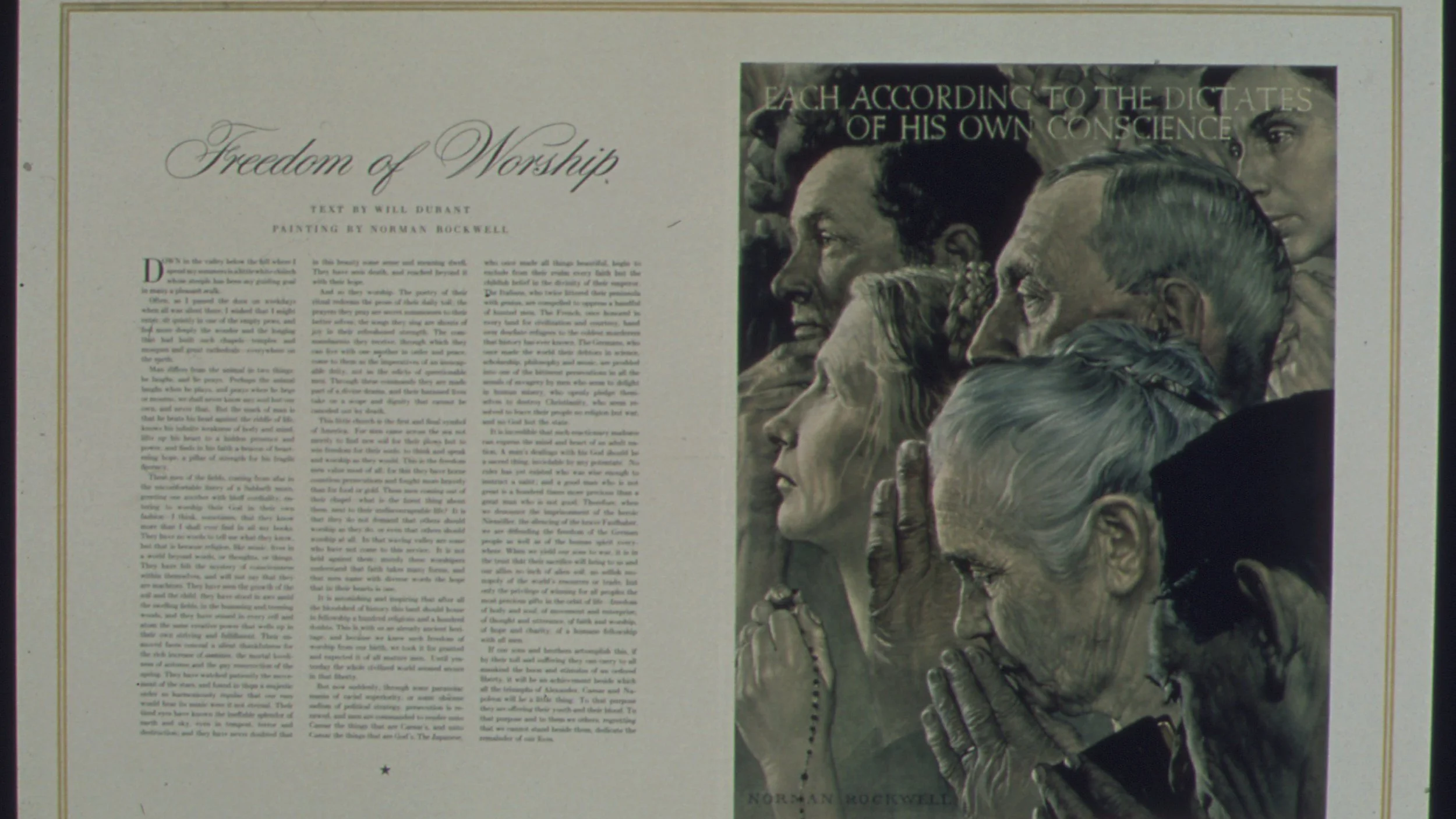We're facing a compelling question in this time of division and unrest: Christian first or American first?
In a time of deepening division and political unrest, a deceptively simple question is gaining new urgency: Are you a Christian first, or an American first?
For many, the answer is obvious. For others, it creates a profound tension: a struggle between personal faith and national identity. But when those two loyalties collide, the choice we make reveals what we truly value and the kind of nation we strive to be.
To identify as a Christian first means embracing moral convictions that transcend politics and partisanship. It means upholding values like compassion, humility, justice, forgiveness, and generosity — even when those values challenge prevailing public opinion or government policy. This allegiance is not to any flag or ideology but to a higher conscience that demands courage, even when it runs counter to the crowd.
This moral tradition is not new. Early Christians were defined not by loyalty to empire, but by radical compassion and resistance to injustice. Centuries later, leaders like Martin Luther King Jr. invoked this same ethic to confront systemic racism and inequality. Their patriotism was profound — but it was also a demand that America live up to its highest ideals.
Today this tension is vividly illustrated by the recent passage of the so-called “Big, Beautiful Bill.” Heralded as a triumph for economic growth and national pride, the legislation has received much fanfare. But beneath all the celebration lies a troubling reality: a sweeping policy that cuts millions from Medicaid, slashes funding for SNAP and vital nutrition programs, imperils rural hospitals, and funnels billions of taxpayer dollars into incarceration camps and expanded ICE raids.
This is a bill that prioritizes the wealthy over the poor, punishment over healing, and fear over compassion. While it may be a political victory, it stands in stark opposition to the values of justice, mercy, and care for the vulnerable — values that ought to guide not only our personal faith but our public policies.
So the question must be asked: Can a law that benefits the most privileged at the expense of the vulnerable be called Christian or compassionate?
If faith means anything in public life, it must manifest in how we treat the least among us — not just in charitable acts, but in legislation. A bill that deepens the divide between rich and poor may win votes, but it fails the test of morality. Jesus did not side with the powerful. He stood with the marginalized and the forgotten. When laws widen that gap, people of faith must not applaud-they must speak out.
On the other side, many believe that being a proud American is an expression of their faith in action: a commitment to freedom, opportunity, and responsibility. In this view, honoring God and country means working hard, caring for family, and contributing to the community. Patriotism becomes a moral virtue. Respecting the flag, serving in the military, and defending national interests are seen not only as civic duties but as expressions of faith.
Neither perspective is inherently wrong. But when faith and patriotism clash, the conflict becomes urgent. What do we do when immigration policies turn their backs on the biblical command to welcome the stranger? When national security measures involve violence that contradicts a commitment to peace? When legislation rewards the most privileged, while faith calls us to protect the poor?
This question moves beyond theory. It demands a personal reckoning.
To be a Christian first is not to reject one’s country. It is to hold it accountable to a higher standard. It means telling uncomfortable truths and refusing to let faith be twisted into a political weapon. Patriotism is no excuse to ignore injustice.
There is a crucial difference between patriotism and nationalism. One grows from gratitude and service; the other from conflating power with righteousness. The danger is greatest when religion becomes a shield for harmful policies, or when churches become political cheerleaders instead of moral voices.
Ultimately, this is not a question of disloyalty but of priority. To be a Christian first does not mean loving America less. It means loving it more wisely, with courage, and with an unwavering commitment to justice — even when it is inconvenient. In these turbulent times, as distractions abound and wealth is mistaken for wisdom, such love may be the truest form of patriotism we can offer.
Laura Armstrong of Rapid City, a speech language pathologist who owns a small private clinic, is a regular contributor to The South Dakota Standard. She served two consecutive terms on the Rapid City Common Council (2017-2023) twice as council president, and remains dedicated to the Rapid City community.
Photo: public domain, wikimedia commons
The South Dakota Standard is offered freely and is supported by our readers. We have no political or commercial sponsorship. If you'd like to help us continue our mission to advance independent political and social commentary, you can do so by clicking on the "Donate" button that's on the sidebar to your right.







